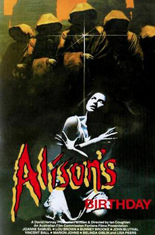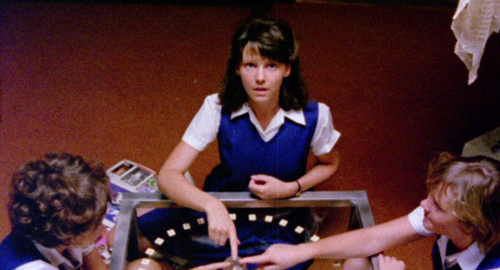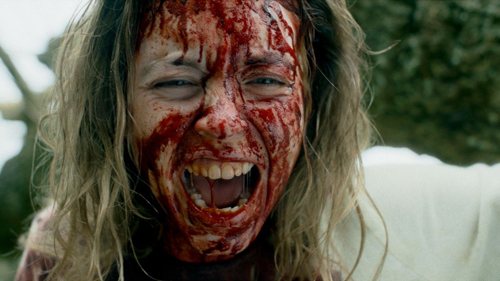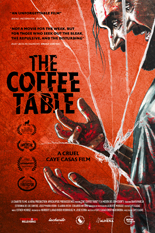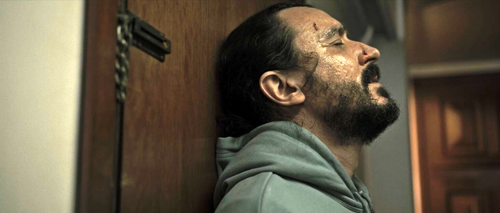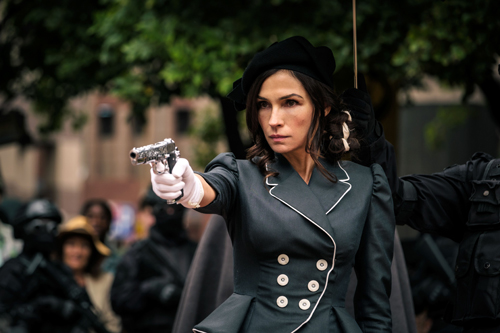

Somewhere between The Purge and The Hunger Games stands The Culling. For decades, the annual, cereal-sponsored event allows the ruler of a totalitarian regime to round up and execute enemies on live TV. Years ago, a boy named Boy witnessed the murder of his family that way. Deaf, mute and now totally ripped, the grown-up Boy (Bill Skarsgård, Barbarian) undertakes a mission of revenge on that politician (Famke Janssen, X-Men) and her own brood.
German director and co-writer Moritz Mohr has built Boy Kills World, his debut feature, similarly to how posh parents whip up a baby by selecting preferred genes. His film is inspired by video games, dystopian sci-fi, kung-fu movies, graphic novels, splatter à la Sam Raimi (who incidentally produces) and more video games. Instead of blonde hair and blue eyes, Mohr seems to have chosen the elements calculated to get his firstborn branded with the “instant cult classic” label. The problem is, awful title notwithstanding, that winning formula can’t be brewed in a lab.
Its fight sequences run so long and are so CGI-dependent, the effect is like watching a marathon session of your roommate play an FPS. At least some of the skirmishes are scored by the propulsive party sounds of El Michels Affair, which recall The Go! Team at its jump-ropin’ peak.
Although slick in the right spots and boasting fun (in small doses) comic turns from Michelle Dockery (Non-Stop) and Sharlto Copley (Monkey Man) as members of the political dynasty, the film tries hard to please — so hard that it ultimately proves to be too much of a good thing. In fact, it’s too much of too much, right down to use of the Wilhelm scream. —Rod Lott
Opens in theaters Friday, April 26.


